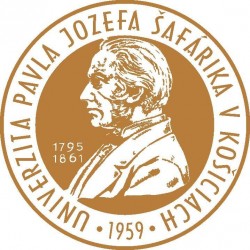- Back
- Location
- Košice
Košický kraj, Slovakia - Date Posted
- 22 May 2024

- Type
- PhD Project
- Košice
Košický kraj, Slovakia - 22 May 2024
PhD in Biophysics

NOTE: this position listing has expired and may no longer be relevant!
Position Description
Spectroscopic studies on organic matter from the bone tissue and eggshells of extinct organisms
Synopsis: A long-standing paradigm referring to degradation of organic substance excluded a possibility for preservation of soft tissues of organisms that lived during the Mesozoic Era. Recently, such claims were revised by discovery of the Cretaceous Jehol Biota in China. Fossilized organic remains of the Jehol animals had preserved under taphonomic processes that are linked with volcanic activity. Other factors involved in mummification of soft tissues are arid climatic conditions. These are more typical for the Mesozoic fossils discovered in the Gobi Desert. The present PhD project aims to understand taphonomic selectivity in the preservation of fossil biomolecules as well as in the mineral replication of soft tissues due to different climatic and ecological factors. The principal analytical technique to be used is Raman spectroscopy. The method itself and its potential applications in molecular paleobiology is the object of investigation as well. We shall study a wide range of fossil tissue samples of the Mesozoic and Cenozoic animals discovered in Europe, Asia, Madagascar, Australia and New Zealand.
We expect the applicants to be fluent in spoken and written English, to show high work engagement, to work along and in a team, to have a basic knowledge and skills in optical spectroscopy methods.
Supervisor: Dr. Zuzana JURAŠEKOVÁ – Department of Biophysics, Faculty of Science, P. J. Šafárik University (UPJŠ) in Košice, Slovakia
E-mail: zuzana.jurasekova@upjs.sk
Co-supervisor: Associate Professor Martin KUNDRÁT – Head of PaleoBioImaging Lab and Team Leader of Evolutionary Biodiversity Group; Center for Interdisciplinary Biosciences, Technology and Innovation Park, UPJŠ in Košice, Slovakia.


